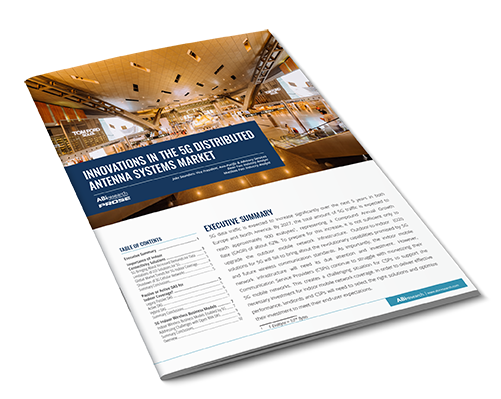Sponsored by ![]()
By 2027, the total amount of 5G traffic in both Europe and North America is expected to reach approximately 900 exabytes, representing a Compound Annual Growth Rate (CAGR) of approximately 62%. Unfortunately, outdoor-to-Indoor (O2I) solutions for 5G alone will fail to bring about the revolutionary capabilities promised by 5G and future wireless communication standards.
Just as importantly, the indoor mobile network infrastructure will need its due attention and investment. However, Communication Service Providers (CSPs) continue to struggle with monetizing their 5G mobile networks, creating a challenging situation for CSPs to support the necessary investment for indoor mobile network coverage. To deliver effective performance, landlords and CSPs will need to select the right solutions and optimize their investment to meet their end-user expectations.
A Distributed Antenna System (DAS) is one solution that enables CSPs and, increasingly, landlords that wish to offer neutral hosts within their premises a way to deploy indoor mobile infrastructure efficiently. ABI Research forecasts that the investment in global indoor DAS equipment will grow at a CAGR of 18% through 2027, reaching US$16 billion.
Indoor wireless connectivity is expected to be of great importance as 5G end-user adoption ramps up and 5G-Advanced evolves. With the advent of 5G, alongside the other key drivers, such as Open RAN and technological advancements in DAS solutions, it is essential for both CSPs and the industry to adopt new business models and deploy future-proof indoor connectivity solutions.
Download the whitepaper to learn more.

